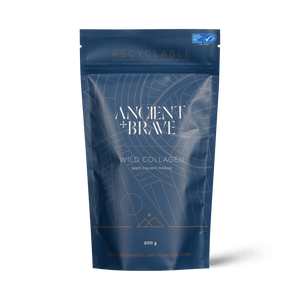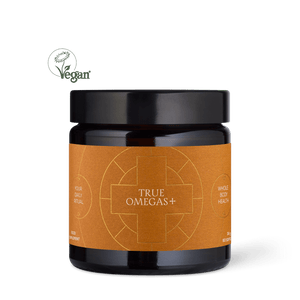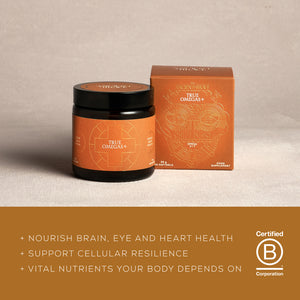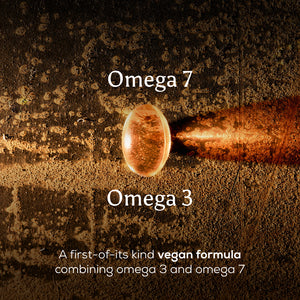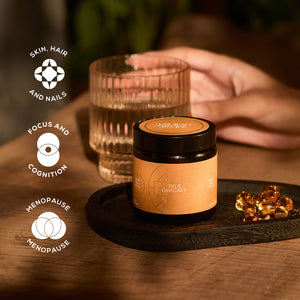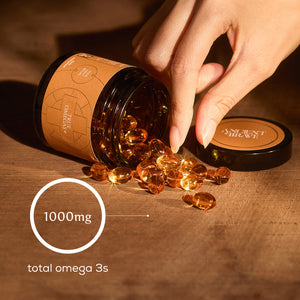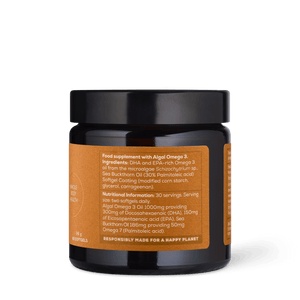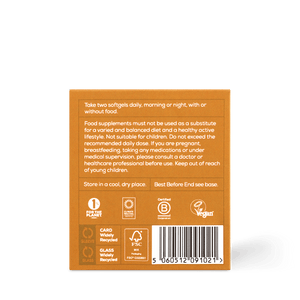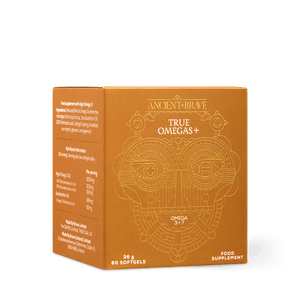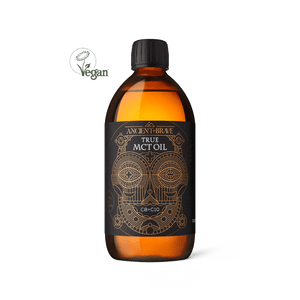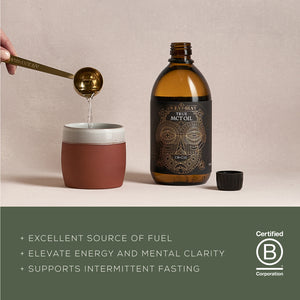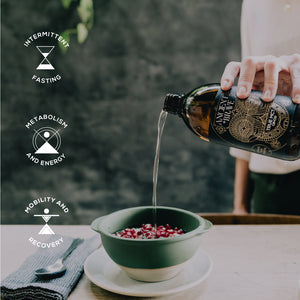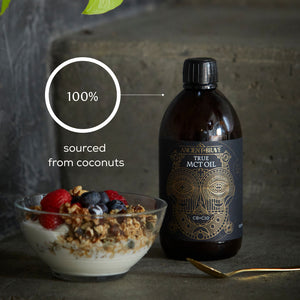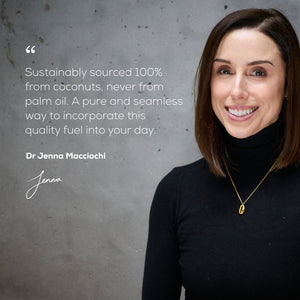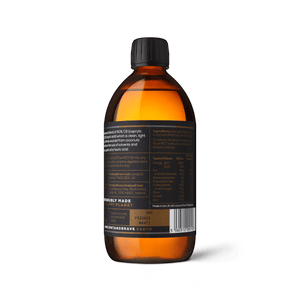Wild Collagen
Why Take It
Measure your dose
How to Use
Clinical Trials
We’re committed to creating formulas that truly deliver. Investing scientific research, our latest clinical trial reveals outstanding results, proving Wild Collagen’s efficacy as a multi-functional wellness supplement.
This double-blind, placebo-controlled clinical trial in 60 healthy UK females aged 35-55 was designed to go beyond conventional beauty claims and rigorously investigate the full-body benefits of collagen supplementation over 12 weeks.
The study received approval from an independent research ethics committee and adhered to the highest standards of clinical research.
A snapshot of the transformative results:
- 137% increase in skin hydration
- 94% saw an improvement in skin elasticity
- 100% saw a reduction in fine lines & wrinkles
- 74% noticed less joint stiffness & discomfort
- 97% found they recovered faster from exercise
- 81% felt more energised throughout the day
Ingredients & Nutritionals
Ingredients
100% Marine Hydrolysed Collagen Peptides (fish).
Amino Acid Profile
| Amino Acid | g/100g of protein |
|---|---|
| Glycine | 21.8 |
| Proline | 11.1 |
| Glutamic Acid | 10.2 |
| Arginine | 9.5 |
| Alanine | 7.9 |
| Hydroxyproline | 7.5 |
| Aspartic Acid | 6.4 |
| Serine | 6 |
| Lysine | 3.7 |
| Threonine | 2.8 |
| Leucine | 2.7 |
| Valine | 2.2 |
| Phenylalanine | 2.2 |
| Methionine | 1.9 |
| Histidine | 1.6 |
| Isoleucine | 1.3 |
| Hydroxylysine | 0.8 |
| Tyrosine | 0.7 |
Nutrition
| Nutrition | per 100g | per 5g |
|---|---|---|
| ENERGY(kJ) | 1530kJ | 76kJ |
| ENERGY(kcal) | 360kcal | 18kcal |
| FAT | 0g | 0g |
| of which saturates | 0g | 0g |
| monounsaturates | 0g | 0g |
| polyunsaturates | 0g | 0g |
| CARBOHYDRATES | 0g | 0g |
| of which sugar | 0g | 0g |
| FIBRE | 0g | 0g |
| PROTEIN | 90g | 4.5g |
| SALT | 0.78g | 0.04g |
Cautionary advice: If pregnant or breastfeeding please consult with your GP or midwife. If you are taking medication or under medical supervision, consult your doctor before taking any food supplement.
-
Whole Body Benefits
-
Finest Ingredients
-
Free Shipping Available
-
Sustainably Sourced
-
30 Day Confidence Guarantee
On every purchase
Works well taken alongside
How Collagen Works and What the Science Tells Us (So Far)

FAQs
WHAT IS THE DIFFERENCE BETWEEN MARINE AND BOVINE COLLAGEN?
There are a few key differences between marine and bovine collagen linked in our journal article here. Ultimately, marine collagen and bovine collagen are equally effective - both providing 100% hydrolysed type I collagen peptides. One is not better than the other, it’s more a matter of dietary preference. As long as the quality of the supplement is high then its source doesn’t really affect the benefits you receive.
WHAT ARE HYDROLYSED PEPTIDES?
Our True Collagen contains hydrolysed collagen peptides which are a more available and absorbable form of amino acids,making it easy for our body to utilise. Collagen exists in nature as a very large, complex molecule constructed from lots of long chains of polypeptides. The collagen molecule itself is far too big to be absorbed across the gut wall, so it needs to be broken down during digestion into smaller chains called peptides. Once absorbed, these peptides are available to contribute to collagen renewal within bones, skin and connective tissue. ‘Hydrolysed’ simply means ‘unchaining’ the long protein strands into smaller ‘peptides’ so we can absorb them more readily. This process is like having them ‘predigested’, making them more bioactive so we can take them up and absorb them easily to build important tissues.
WHEN SHOULD I START TAKING COLLAGEN?
Taking collagen can be beneficial at any age, but we know that the body’s ability to produce collagen naturally starts to decline in our early 20s. As we move past roughly 30 years old, it is thought that collagen depletes faster than our body can produce it. Therefore, you can begin taking collagen in your 20s to get ahead of the body’s natural depletion as you age, but you are more likely to see noticeable benefits from age 35+. Ultimately, the age you want to start taking collagen supplements is a personal decision. The Ancient + Brave team will be here to support you and guide you through your journey.
Is this suitable for sensitive digestion?
A common myth surrounding collagen supplements is that they can lead to digestive discomfort. In reality high-quality, hydrolysed collagen peptides are generally very well tolerated and are often used to support gut health.
When introducing a new protein source like collagen, proteins require specific enzymes to break them down effectively, the digestive system sometimes needs time to adjust.
To help support your gut in absorbing and processing the protein efficiently, here are some tips that may help:
- Start with a smaller dose (½ to 1 teaspoon) and gradually increase to allow your digestion to adapt.
- Take it with food to aid digestion and minimise discomfort.
- Support digestion with natural enzymes - foods like pineapple, papaya, or taking a digestive enzyme supplement with food can help break down proteins and ease symptoms.
- Stay hydrated - collagen draws in water, so drinking plenty of fluids supports digestion.
- Incorporate gut-friendly foods like fermented foods (yogurt, kefir, sauerkraut) and fibre-rich foods to promote a healthy microbiome.
We’ve also put together a helpful guide on gut health with more in-depth insights into how collagen can support digestion in the long run. Please reach out to our team if you need any additional support. *As a brand, we are not in a position to make any medical claims, so we always recommend consulting your GP or healthcare professional who has knowledge of your medical history. They are best placed to advise on whether a product is suitable for your specific needs and provide tailored recommendations.
Why is there no additional ingredients added?
We keep our True Collagen and Wild Collagen purely collagen-focused to ensure a versatile and easily to use product. Our collagen can blend effortlessly into any drink, letting you adjust your dose as needed without the concern of over-supplementing on individual vitamins and added nutrients. This simplicity allows you to benefit consistently from high-quality collagen, while still having the flexibility to complement it with any additions based on your unique wellness routine.
For those interested in collagen combined with additional functional ingredients, we recommend exploring our Brave Blends. These delicious drinks, from Cacao to Matcha, pair collagen with synergistic nutrients to support wellness in a convenient, flavourful way.
We’re passionate about sharing our collagen expertise and would love to send you our Guide to Collagen if you are interested in taking a deeper dive on the science behind all of our collagen products.
Why do you only focus on Type I?
We focus on providing the most essential and effective collagen for the body, which is why we offer Type I collagen in our True and Wild products.. Type I is the most abundant and important type, making up the majority of skin, bones, and connective tissues.
While predominantly Type I, True Collagen also naturally contains traces of Type III collagen. However, due to hydrolysis, distinguishing the amounts of collagen peptides of Type I and Type III becomes impossible to analyse, and so as the most abundant within the end product, the focus remains on Type I, although it is more than likely you are benefitting from both types.
CAN YOU TAKE TOO MUCH COLLAGEN?
Collagen is a compound your body naturally produces, so there are no harmful side effects of taking too much per se, except potentially an upset stomach or bloating. There are no studies that show upping the doses will help you reach your health goals any faster, therefore sticking to the recommended daily intake is optimal.
The recommended daily dose of collagen is 5-15g, which is supported by most clinical studies. For most people, 5g is ideal. However, some individuals may benefit from a higher dose of 10-15g, such as those recovering from an injury, following a low-protein (e.g., vegetarian) diet, experiencing age-related collagen decline, or engaging in intensive physical activity. If you experience digestive side effects, we would recommend reducing to a smaller dose (½ to 1 teaspoon) and gradually increase to allow your digestion to adapt.
IS THERE ANYTHING I SHOULD AVOID PUTTING COLLAGEN IN?
Collagen peptides are extremely versatile and heat-stable up to 300°C - well above the temperatures used in everyday cooking or boiling water (100°C). This means you can confidently add them to hot drinks like tea, coffee, or even soups and stews without affecting their benefits. In fact, many people love adding collagen to their morning coffee for an easy daily ritual.
However, we recommend avoiding adding to fizzy or carbonated drinks. Collagen doesn't dissolve well in carbonated liquids, which can cause clumping or frothing, and may negatively affect texture and taste. For the best experience, stick to still beverages, smoothies, or any food or drink where it can dissolve smoothly.
Is collagen supportive during the menopause?
Our menopause guide provides helpful information about the changes that occur in the body during perimenopause and menopause - and how collagen can offer support when navigating this chapter.
We understand every menopause journey is unique and symptoms can vary for each individual. Many of our blends feature nutraceuticals and botanicals that can help manage specific symptoms, all of which are broken down in the guide to help you choose the right product for your needs.
IS WILD COLLAGEN SAFE TO TAKE DURING PREGNANCY OR BREASTFEEDING?
You should always consult with your doctor or midwife regarding any new additions to your diet or supplements you take during your pregnancy and breastfeeding journey. Whilst there are also no studies available due to ethical challenges involving research in pregnant people, we aren’t aware of any contraindications in taking any of our products whilst pregnant or breastfeeding and they should be well tolerated.
DOES COLLAGEN SURVIVE STOMACH ACID?
Stomach acid plays a very important role in breaking down protein and yet hydrolysed collagen peptides are unlikely to be digested in the stomach at all and instead go to the small intestine to be absorbed. Enzymes in the small intestine work at breaking down chains of protein molecules called peptides into even shorter peptides and amino acids which can then be absorbed in the bloodstream. The peptides and aminos will be added to the amino acid pool and trigger the body to produce new collagen.
